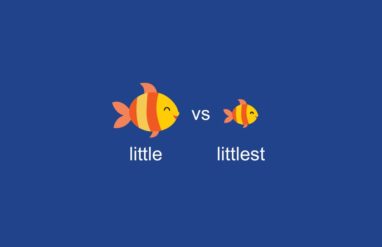We use a lot … a lot. But ask someone to define a lot and they’ll probably start by saying “A lot means … a lot!” That’s because it’s so commonly used that it can be hard to think of how to explain it.
A lot can seem like it should be a single word—and maybe one day the spelling alot will appear in this dictionary. But right now, the two-word spelling a lot is the one that’s recognized as standard. As for allot, it’s a different word altogether (even though it’s pronounced the same).
Allot some time to learn why a lot is spelled the way it is, and we promise you’ll learn a lot more along the way (including how to know whether a lot is being used as a noun or an adverb).
⚡️ Quick summary
A lot, which is often misspelled as alot, means “a large number or quantity” or “very much,” and it can be used as a noun or an adverb. Allot is a verb that means “to portion out” or “to set aside a share or portion of something, such as money or time, for a specific purpose.”
What does a lot mean?
As a noun, a lot means “a large number, quantity, or amount,” as in That’s a lot of cheese! or I only have a few hobbies, but my husband has a lot.
As an adverb, a lot means “very much” or “a great deal,” as in I love you a lot, or “often,” as in I’ve been practicing a lot. It’s used as an adverb in the phrase Thanks a lot (which is the same as saying Thanks very much).
Sometimes, it can be hard to tell whether a lot is being used as a noun or an adverb (making it hard to know what it’s supposed to mean). One way to tell is to remember that the noun use of a lot can be (and often is) paired with the word of and another noun. For example, in the sentence I had to study a lot for the test, the term a lot could refer to a lot of material, in which case it’s being used as a noun. However, if a lot is supposed to mean “often,” it’s being used as an adverb.
A lot is probably misspelled as alot so commonly because we tend to think of it as functioning as a single word, but it’s really a combination of two: a (the extremely common indefinite article we use all the time, as in I have a cat and a dog) and lot (which, by itself, can mean “large number or quantity” or “great deal”).
The word lots can mean the same thing as (and can be used interchangeably with) a lot, both as a noun, as in Lots of people were at the party, and as an adverb, as in I love you lots or I’ve been practicing lots. A lot is informal but very common, and lots is even more informal.
A lot is very similar to other constructions like a ton (which can be used as a synonym of a lot) and a bit (which can be thought of as the opposite of a lot). Like a lot, both terms can also function as both nouns and adverbs: a bit of cheese (noun); back up a bit so you can be in the picture (adverb).
What does allot mean?
Allot is a verb that means “to divide out something into shares or portions,” as in His estate was allotted among his heirs.
It can also mean “to dedicate or assign something, especially money or time, for a specific purpose,” as in We’re going to allot half of our budget for supplies or Please allot some time to review your work.
The noun form is allotment, which can mean the same thing as portion.
How to use a lot vs. alot vs. allot
When to use a lot: when you’re talking about a large quantity of something or want to indicate that something happens or is done often or all the time. A lot is only ever used as a noun or an adverb.
When to use alot: don’t. It’s a misspelling of a lot.
When to use allot: when you’re talking about dividing something into portions or devoting a portion of time, money, or something else to a specific purpose. Allot is only ever used as a verb.
Examples of a lot and allot used in a sentence
Check out these examples to see how a lot and allot are commonly used in a sentence (sometimes even in the same one).
- I like a lot of toppings on my pizza.
- I have a lot, and I believe it’s my responsibility to help people who have very little.
- I’ve been thinking a lot about this problem, and I think I have a solution.
- The remaining shares have been allotted between you and your sister.
- The residents at the meeting requested that we allot more money to the park project.
- You’ll need to allot a lot of time to count the ballots—there are almost 500.













